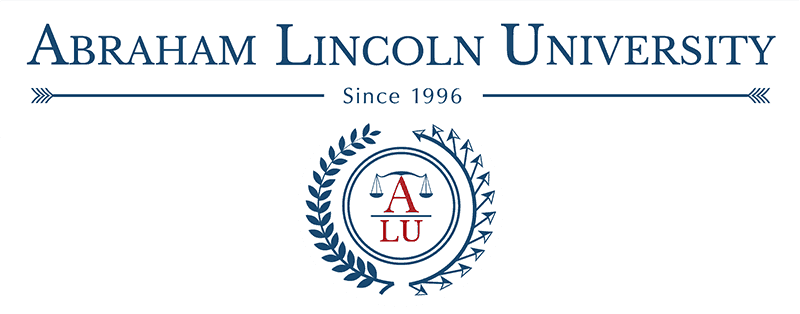Kanako Blondet graduated from Abraham Lincoln University School of Law in 2007. As a Social Worker, Blondet experienced first hand how life-altering a lawyer’s presence in court could be for families, especially children and defendants in need of an interpreter. These moments in court and her love of studying criminal law are what prompted her to take her knowledge to the next level and eventually, to join the California Innocence Project.
As a law student at ALU, what subject did you like studying the most?
I liked Criminal Law and Constitutional Law the most. Criminal Law was close to home and easy to digest, compared to other subjects such as Property Law, Civil Procedure, and Corporation, which I dreaded. Constitutional Law is very interesting because it’s like studying the history of the foundation of this country. I was born and raised in Japan, so I did not take any American Constitution classes in school.
The laws of Equal Protection, First Amendment, 4th and 5th Amendment, and Due Process are all fascinating. I still don’t understand why Korematsu v. U.S. is not completely overturned, but that is part of the U.S’s history.
What inspired your involvement with the California Innocence Project?
I was involved in a criminal case of a Japanese national and it opened my eyes to two things–how “junk science” can lead to conviction and how non-English speakers are tricked into coerced confessions during police interrogation. The first point–“junk science”–is very controversial, it’s called “medical diagnosis of murder” by some experts.
Fortunately, the victim (in this case his infant daughter) recovered and did not die, but had she died, he would have been charged with murder. I truly believed in his innocence. When I did some research on the subject, I learned that many convicted felons are being re-tried, some of whom have been found not guilty and released. I attended a conference where I met a neurosurgeon expert witness who told me that new medical findings are emerging which often discredit the convicting diagnoses of these cases. We worked very hard on this particular case and were able to cut a deal with the D.A. so that the client was sentenced to probation only.
“The second point, coerced confession of a non-English speaker, is nothing new, but it was the first time that I actually watched DVDs of a police interrogation.”
The police used a policeman who spoke very little Japanese as an interpreter during the interrogation. I was appalled. The interpreter didn’t understand basic words like “taking a bath” and interpreted “six months” for “June.” Not only was the interpreter making things more confusing, but he was also providing wrong information to the police. The interrogation went on for three days in this manner, without a Miranda warning I might add. The client became so tired that he finally “confessed” to what the police had been telling him that he must have done because he “just wanted to go home.”
I was very angry and searched everywhere, but could not find a law that said that the police are required to use a certified interpreter during interrogation. It only requires a “reasonable” interpreter. The interpreter used in this case was not reasonable, but the client was arrested based on his confession and charged with felony child abuse anyway.
After this experience, I always tell people, “Do not talk to the police, do not try to show your sincerity and do not put up with an interpreter who doesn’t understand you. You must always demand an attorney and tell them you cannot say anything until you have an attorney present.”
When I see habeas corpus cases on TV where wrongfully convicted felons are exonerated and released from prison by Innocence Project attorneys, I find myself feeling the strong desire to work in this capacity. After I handled the aforementioned criminal case, my desire to contribute to the Innocence Project became concrete. I will be given materials and write pre-screening memorandum for the staff attorneys who will decide whether or not to take the case.
Where do you currently work and in what position?
When I passed the bar, I continued to work as a social worker for a year then left to open my solo practice. I had only one dissolution client, to begin with, but after just a few days, a legal staffing agency called me and offered me a full-time temp job in litigation support for a large law firm who were hiring licensed attorneys who could read Japanese for e-Discovery. My current responsibilities are reading Japanese documents for relevancy and privilege, or translating “hot” documents into English. I have been involved in high-profile international litigations such as Anti-Trust Law violation, Products Liability, and Corruption/Fraud. Fortunately for me, Japanese-spoken attorneys are in high demand and the pay rate is the highest for Japanese compared to all other foreign languages.
As a solo practitioner, I handle a few cases at a time such as dissolution, special education law, probate, juvenile dependency law, and criminal law–mostly pro bono. I team up with experienced attorneys and handle cases as a co-counsel for Japanese monolingual clients. I do Japanese interpretation and translation between the clients and my co-counsels. The co-counsels like the arrangements, because I bring business to them and handle all of the direct communications with the clients who are often very confused and emotional. But one day, I would like to be able to handle cases completely solo.
One of my passions is conducting seminars on child abuse laws (Juvenile Dependency Law) to a Japanese audience. The law is very different in Japan, so many of the newcomers are surprised to hear about how child abuse and neglect cases are handled here. I warn the Japanese parents that cultural difference or ignorance of the law is no excuse in this country. I do feel that people listen to you more when you are an attorney (as opposed to a social worker, for instance).
What do you hope to achieve as a Mentee at the Asian Pacific American Women Lawyers Alliance (APAWLA)?
My hope is to get a mentor who can guide me through the law practices of Juvenile Dependency Law and Criminal Law. A friend of mine told me that a prominent Japanese-American criminal attorney, Mia Yamamoto, is a member of APAWLA. I read about Ms. Yamamoto recently in a law magazine and her story is truly inspiring. She is transgender and was born in the Japanese concentration camps during WWII. Her famous opening statement to a client is, “I was born a criminal” (in the concentration camp). She is a strong advocate for the accused and I am hoping that one day I will be able to learn directly from her.
Before I began my career as a lawyer I was a social worker. I handled child abuse cases in Juvenile Dependency court and was responsible for investigating child abuse allegations, recording the children’s and parents’ progress and writing court reports. I testified many times in court on behalf of the children and parents involved.
This meant that I worked with many attorneys in court and no matter how much work I put into advocating for a child’s best interests, one strong and effective attorney could change everything. They made the real difference in people’s lives, good or bad. Good lawyers inspired me to become a lawyer, but bad ones also inspired me, because I thought if they could pass the bar maybe I could too. That’s when I found ALU. I graduated in 2007 and even though it took me eight times to pass the bar, I was determined to become the kind of lawyer that could really make a difference.






